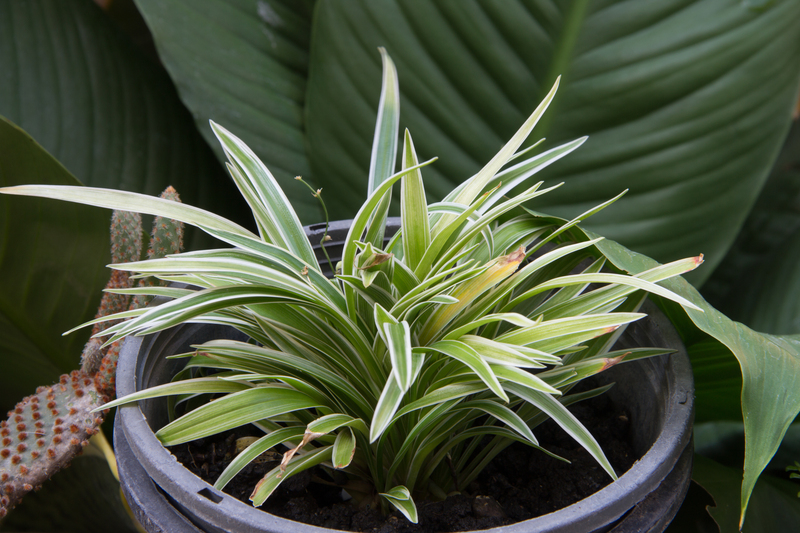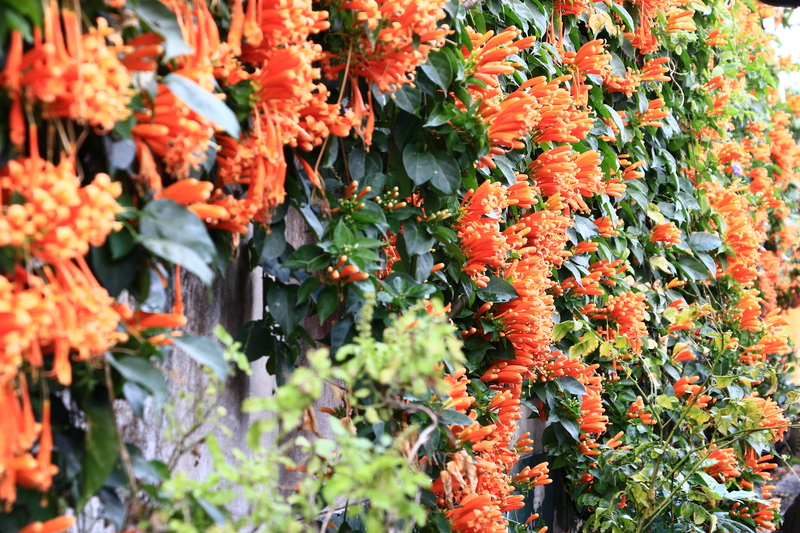Green thumbs up: Gardening for environmental impact
Posted on 03/09/2025
Green Thumbs Up: Gardening for Environmental Impact
The Power of Gardening for the Environment
Gardening is not just about cultivating beautiful flowers or enjoying fresh vegetables. It plays a vital role in preserving our planet and promoting sustainability. If you're looking for a practical way to make a positive difference in your community and the environment, gardening for environmental impact offers a powerful and rewarding solution.
This comprehensive guide dives deep into how your planting efforts can benefit the earth, examines environmentally friendly gardening practices, and suggests actionable steps for both beginner and experienced gardeners. Whether you cultivate a large landscape or tend a few pots on your balcony, your efforts can create a greener, healthier world.

Why Gardening is Crucial for Environmental Sustainability
Global environmental challenges such as climate change, biodiversity loss, and increasing waste make sustainable practices more important than ever. Eco-friendly gardening is one of the simplest and most direct ways individuals and communities can address some pressing environmental concerns.
Gardening for Environmental Impact: Key Benefits
- Boosts Urban Biodiversity: Gardens provide food and shelter for birds, bees, butterflies, and other essential pollinators.
- Reduces Carbon Footprint: Plants naturally absorb carbon dioxide and release oxygen, helping mitigate climate change.
- Manages Stormwater: Healthy soils and gardens can absorb excess rainfall, reducing urban flooding and erosion.
- Improves Air Quality: Vegetation filters pollutants and dust from the air we breathe.
- Reclaims Wasted Spaces: Urban gardening transforms vacant lots and rooftops into green oases.
- Encourages Conscious Consumption: Growing your own food reduces packaging waste and transportation emissions.
With these advantages in mind, let's explore how you can make the most positive environmental impact through gardening.
Eco-Conscious Gardening Practices
Responsible and sustainable gardening for the environment involves more than just planting seeds. The following practices help maximize the ecological benefits of your green space:
Choose Native and Pollinator-Friendly Plants
- Native plants are naturally adapted to your local climate and soil. They require less maintenance, use fewer resources, and resist pests more effectively than non-natives.
- Pollinator-friendly gardens support declining bees, butterflies, and beneficial insects. Choose wildflowers, herbs, and shrubs that bloom across different seasons.
- Reduce invasive species that disrupt habitats and outcompete native flora.
Tip: Consider wildflower meadows or mixed borders featuring native species for long-lasting beauty and biodiversity.
Adopt Organic Gardening Methods
- Avoid synthetic chemicals: Use natural compost, mulch, and organic fertilizers instead of harsh pesticides and fertilizers.
- Encourage beneficial insects: Ladybugs and lacewings naturally control aphids and garden pests.
- Enhance soil health: Composting kitchen scraps and yard waste returns vital nutrients to the earth.
Organic gardening is healthier for humans, wildlife, and the environment.
Practice Water-Smart Gardening
- Install rain barrels to capture water for irrigating your garden.
- Group plants according to water needs for efficient irrigation.
- Mulch around plantings to conserve moisture and suppress weeds.
- Use drip irrigation or soaker hoses to minimize water loss.
Water-wise gardening reduces waste and helps your garden flourish, even in drought conditions.
Build Rich, Living Soils
- Amend soil with organic matter for improved structure, drainage, and fertility.
- Avoid tilling, which disrupts soil life and causes erosion.
- Encourage earthworms and soil microbes--they're nature's best aerators and decomposers!
Healthy soil is the backbone of an environmentally sustainable garden.
Ways to Amplify Your Garden's Environmental Impact
Create a Wildlife-Friendly Habitat
Providing food, water, and shelter for local wildlife is an easy way to increase your garden's ecological value.
- Include bird feeders, baths, and nest boxes.
- Plant berry-producing shrubs and fruit trees.
- Leave leaf litter and dead wood for insects and hedgehogs.
- Install a small pond for frogs and dragonflies.
Your green gardening efforts can help reverse the decline of important species and reconnect fragmented habitats in cities and towns.
Compost Your Way to Greener Living
Composting is one of the most impactful ways to reduce household waste while significantly improving garden health.
- Turn kitchen and yard scraps into valuable fertilizer.
- Capture nutrients that would otherwise end up in landfills, where they produce methane.
- Reduce the need for store-bought soil amendments.
Maintaining a compost pile or worm bin is a cornerstone of sustainable gardening for the environment.
Minimize Single-Use Plastics in the Garden
- Opt for biodegradable pots and seed trays, or recycle plastic containers from your kitchen.
- Choose reusable garden tools and gloves.
- Buy seeds and plants from local nurseries to cut down on packaging and transport miles.
Every plastic-free swap reduces pollution and supports a greener gardening routine!
Innovative Gardening Techniques for Greater Impact
Permaculture Design Principles
Permaculture is more than a buzzword--it's a holistic approach to growing food and flowers in harmony with nature. Key strategies include:
- Observe and interact: Work with your site's natural features, sunlight, and patterns.
- Use renewable resources: Rainwater harvesting, solar lights, and home-made compost.
- Integrate, don't segregate: Mix edible, ornamental, and wildlife-attracting plants for ecosystem balance.
Permaculture gardens are beautiful, productive, and climate-resilient--a true win for the environment!
Vertical and Urban Gardening
- Make the most of limited space: Grow up walls, fences, and balconies using vertical planters and trellises.
- Community gardens in cities reduce the urban heat island effect and increase food security.
- Rooftop gardens insulate buildings and filter pollutants from city air.
Even tiny spaces can have a big environmental impact with sustainable gardening techniques.
Regenerative Gardening
The regenerative gardening movement goes a step beyond sustainability. Its core focus is to restore the land, boost biodiversity, and rebuild topsoil.
- Emphasize cover crops (like clover) and companion planting.
- No-till methods preserve living root systems and mycorrhizal fungi.
- Encourage deep-rooted perennials for carbon sequestration.
A truly regenerative garden gives back more than it takes--supporting both people and planet.
Gardening for Environmental Impact: Getting Started
1. Assess Your Space and Resources
Begin by evaluating your garden area. Is it a small urban yard, a rural plot, or even just a windowsill? Every space can contribute to environmental health. Take note of sunlight, soil type, local wildlife, and potential sources of compost or rainwater.
2. Plan Your Green Garden with Sustainability in Mind
- Research native plants and drought-tolerant varieties.
- Design wildlife corridors and multifunctional beds.
- Leave space for composting and water storage systems.
3. Start Small, Think Big
You don't need to transform your entire landscape overnight. Start with a pollinator patch, a vegetable bed, or a handful of potted herbs. Every plant helps!
4. Learn and Adapt Continuously
Keep notes on your garden's performance. Observe which practices succeed, and adjust for improved resilience and environmental benefits year after year.
Green Gardening in the Community
Gardening for positive environmental impact doesn't have to be a solo endeavor. Community gardens, school gardens, and neighborhood biodiverse projects multiply positive outcomes by bringing people together and sharing resources.
- Join or form a local gardening club.
- Participate in environmental restoration projects.
- Advocate for more green spaces within cities and schools.
Collective efforts can transform entire neighborhoods, making your garden part of a much larger green movement.
Overcoming Challenges: Eco-Friendly Gardening Solutions
Urban Limitations
If space is an issue, use containers, vertical gardening systems, and windowsill planters. Every inch of greenery helps offset environmental problems such as air pollution and heat islands.
Pest Management Without Chemicals
- Use companion planting to deter pests (e.g., marigolds for aphids).
- Encourage bird and insect predators naturally.
- Use physical barriers, such as row covers and nets.
Dealing with Poor Soil
Enrich soils over time with compost, green manures, and organic mulches. Consider raised beds if drainage is a problem.

The Broader Picture: Gardening as Environmental Activism
Never underestimate the cumulative effect of thousands of environmentally mindful gardens across the globe. Each garden, no matter its size, can:
- Sequester carbon from the atmosphere.
- Reclaim urban or degraded land.
- Improve food security and mental wellbeing.
- Strengthen communities through shared green spaces.
By tending a garden with the planet in mind, you are contributing to the fight against climate change, biodiversity loss, and pollution. This is true environmental activism, one green thumb at a time.
Conclusion: Dig In for the Planet
We all have the power to create positive environmental change through gardening. With every wildflower sown, compost heap started, and bee-friendly shrub planted, you help ensure a healthier planet for future generations. Sustainability is not about perfection--it's about progress, awareness, and a willingness to nurture the world around us.
So, give yourself a green thumbs up, and start gardening for environmental impact today!
- Plant for the wildlife.
- Compost to close the loop.
- Garden with resilience and regeneration in mind.
- Share your green space and knowledge with your community.
Your garden is more powerful than you imagine. Dig deep, grow green, and let your gardening become a beacon of hope for the environment.

